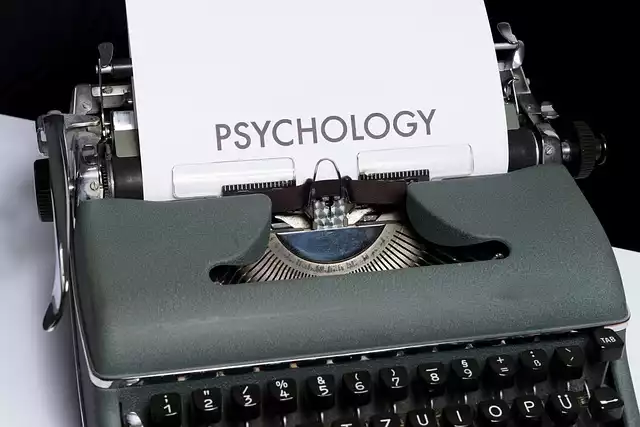
When researchers examined the brain scans, they found that in the group receiving only usual care, a cognitive control circuit that became less active over the course of the study correlated with worsening problem-solving ability.
The form of cognitive behavioral therapy made use of in the trial, referred to as problem-solving treatment, is designed to enhance cognitive skills made use of in planning, fixing and adjusting out unnecessary details. A therapist overviews individuals in determining real-life issues -; a conflict with a flatmate, claim -; conceptualizing services and choosing the best one.
Both teams, typically, boosted in their overall clinical depression intensity. Yet when Zhang dug much deeper into the 20-item anxiety analysis, she found that the clinical depression symptom most relevant to cognitive control -; “really feeling whatever is an initiative” -; taken advantage of the more effective cognitive handling acquired from the therapy.
“We wanted to see whether this analytical treatment in particular could regulate the cognitive control circuit,” claimed Xue Zhang, PhD, a postdoctoral scholar in psychiatry who is the lead author of the research.
“That’s important, because it tells us that there is a real mind modification taking place very early, and it’s in the time frame that you would certainly expect brain plasticity,” Williams claimed. “Real-world problem solving is essentially altering the mind in a number of months.”
News-Medical. Net provides this clinical details solution in accordance
with these terms and conditions.
Please note that clinical information found
on this website is developed to support, not to replace the connection
between patient and physician/doctor and the clinical suggestions they may supply.
“Yet in anxiety, we have no tests being made use of. You have this wide feeling of emotional pain, however it’s a trial-and-error procedure to choose a treatment, because we have no examinations of what is going on in the brain.”
New study led by Stanford Medicine has actually found that it can -; if a therapy is matched with the ideal people. In a research of adults with both clinical depression and excessive weight -; a difficult-to-treat combination -; cognitive behavioral therapy that focused on issue resolving minimized anxiety in a third of people. These individuals also revealed adaptative adjustments in their mind wiring.
New research led by Stanford Medication has actually located that it can -; if a treatment is matched with the best individuals. In a research study of grownups with both depression and weight problems -; a difficult-to-treat mix -; cognitive behavioral treatment that concentrated on issue resolving minimized depression in a 3rd of patients. These clients additionally showed adaptative modifications in their mind circuitry.
The participants in the brand-new research study were grownups detected with both significant clinical depression and excessive weight, an assemblage of symptoms that commonly shows troubles with the cognitive control circuit. Patients with this account generally do poorly on antidepressants: They have a disappointing response rate of 17%.
Williams and Jun Ma, MD, PhD, professor of scholastic medicine and geriatrics at the College of Illinois at Chicago, are co-senior authors of the study released Sept. 4 in Science Translational Medication. The job is part of a larger clinical test called RAINBOW (Study Focused On Improving Both State Of Mind and Weight).
Of the 108 participants, 59 went through a year-long program of problem-solving therapy along with their typical care, such as medicines and brows through to a health care doctor. The various other 49 obtained just usual treatment.
Previous work from Williams’ laboratory, which recognized 6 biotypes of clinical depression based upon patterns of brain activity, approximated that a quarter of individuals with depression have dysfunction with their cognitive control circuits -; either excessive or too little task.
While we only use modified and accepted material for Azthena
answers, it may from time to time provide incorrect responses.
Please confirm any type of data provided with the related providers or
writers. We do not supply medical recommendations, if you look for
medical info you have to always consult a clinical
professional before acting on any kind of info provided.
When scientists examined the brain scans, they found that in the group getting only common treatment, a cognitive control circuit that became much less energetic throughout the research associated with getting worse analytic capability.
They were provided fMRI mind scans at the start of the study, after that after two months, 6 months, 12 months and 24 months. During the mind scans, the individuals completed a test that includes pushing or not pressing a button according to message on a display -; a job known to engage the cognitive control circuit.
The scientists located that these very early changes signified which individuals were responding to the treatment and would likely improve on problem-solving skills and anxiety signs and symptoms at 6 months, twelve month and also one year after the therapy ended, at 24 months. That indicates a brain scan can be utilized to anticipate which individuals are the best prospects for analytic treatment.
“We’re seeing that we can pinpoint the enhancement specific to the cognitive element of anxiety, which is what drives handicap since it has the biggest influence on real-world functioning,” Williams claimed.
They were provided fMRI mind checks at the start of the research study, then after two months, six months, twelve month and 24 months. Throughout the brain checks, the participants completed a test that involves pushing or otherwise pressing a switch according to text on a display -; a task understood to involve the cognitive control circuit. The examination allowed the researchers to assess adjustments in the task of that circuit throughout the research study.
Cognitive behavior modification, one of one of the most common therapies for depression, can show abilities for coping with day-to-day troubles, enhance healthy and balanced behaviors and counter adverse thoughts. Yet can altering ideas and behaviors cause lasting adjustments in the mind?
In the group receiving treatment, the pattern was turned around: Decreased task associated with enhanced problem-solving capability. The researchers think this may result from their brains discovering, via the treatment, to process info more successfully.
1 Cognitive behavioral therapy2 cognitive control circuit
3 reinforce healthy behaviors
« Boom, Now Bust: Budget Cuts and Layoffs Take Hold in Public HealthRaw white garlic shows promise in boosting heart health and reducing disease risks »
